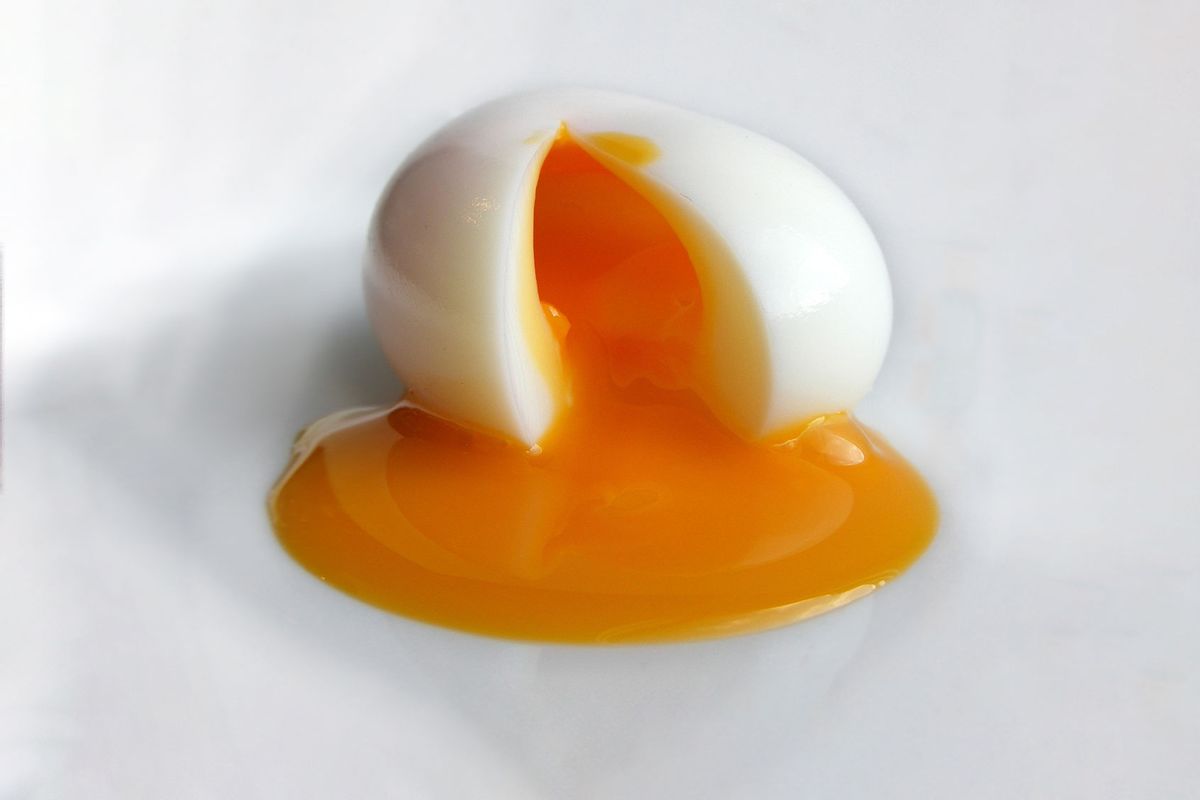Somewhere in Italy, a group of researchers has cracked the code to the perfect egg. It just takes 32 minutes.
A study published last week in “Communications Engineering” details a breakthrough in egg science that, if widely adopted, could alter the course of human breakfasting forever. The problem, researchers explain, is fundamental: an egg is not a uniform entity, but a delicate, two-part structure. The yolk and the white set at different temperatures, which means cooking them to their individual best states — jammy but not runny, set but not rubbery — is often an exercise in compromise. The solution?
A process called “periodic cooking,” in which the egg is cycled between 212-degree Fahrenheit water and 86-degree water every two minutes, for a total of 32 minutes. The result, according to the study, is an egg cooked with an almost supernatural level of precision. The yolk is silky, the white tender. Even better, the method preserves higher levels of polyphenols, an antioxidant compound found in the yolk that helps fight inflammation. This egg is, in every measurable way, superior.
It is also, obviously, absurd.
In the landscape of perfecting eggs, this is not the first — and will certainly not be the last — grand declaration of an optimized technique. The quest for the ideal egg is as old as time, or at least as old as the first human who cracked one into a hot pan and thought, “Could this be better?” There are thousands of ways to cook an egg, and we have spent thousands of years trying to make each of them perfect.
There are egg cookers that look like tiny science-fiction domes, sleek with LED lights and alarmingly specific water-measuring systems. There are novelty egg cookers shaped like six penguins holding hands (flippers?), where each egg slots into a cartoonish belly before being lowered into boiling water like a precious cargo. There are countertop devices that promise to scramble your egg inside the shell, so you never have to sully a whisk again. If a person desires a method of egg cooking that is more elaborate than simply using a pot and some heat, capitalism has an answer.
And then there’s the question of method. Some people fry eggs in butter, some in oil, some in a precise ratio of both. Some baste their eggs in hot fat, some insist on a lid to trap steam and ensure even cooking. Scrambled eggs alone are a universe of opinions: Anthony Bourdain swore by a dollop of sour cream and some chives. Alton Brown suggested a teaspoon of mayo whisked in to enhance the creaminess (he’s right). Ina Garten, patron saint of home cooks, uses half-and-half. Martha Stewart’s secret? Farm-fresh eggs and patience, apparently.
We need your help to stay independent
None of these methods, it should be noted, require 32 minutes.
There is something both admirable and ridiculous about our need to optimize what is already good. The desire to perfect the egg comes from the same impulse that drives us to find a way to peel garlic more efficiently (smash it with a knife! Shake it in a jar! Blow on it with a hairdryer!) or to make the softest, most impossibly juicy chicken breast (brine it, sous-vide it, poach it in milk or just accept that chicken breast is fundamentally kind of dry when compared to thighs). The recent era of food-hack videos, which turned basic cooking skills into viral challenges of absurdity, was exhausting in its insistence that everything must be easier while simultaneously demanding a specialized gadget or unexpected chemical reaction to make it happen.
And yet, there is something a little bit endearing about all of this. Cooking is one of the most basic things we do and it makes sense that we want to make it better. That we want a small, incremental improvement in the way we start our mornings. That we, as people, are willing to tinker with a pan of eggs, adjusting the heat, whisking in dairy, flipping at the exact right moment — just to get the tiniest bit closer to perfection.
Is that enough to get me to make a 32-minute egg? Probably not. But I do love that someone, somewhere, cared enough to try.



Shares